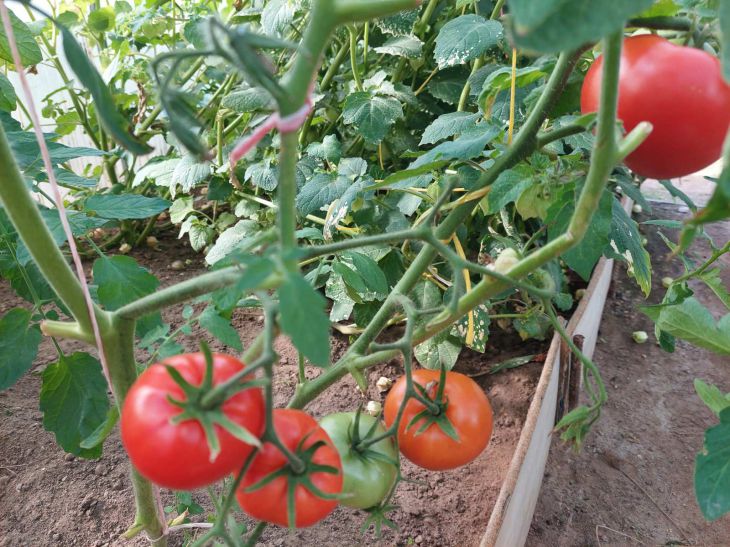In May, many gardeners will begin planting tomato seedlings in open ground.
During the procedure, some gardeners put fertilizers in the hole. For example, ash, fish meal, certain types of mineral fertilizers.
This is the right step: the plant immediately receives nutrients and microelements. As a result, the chances of a good harvest increase.
But sometimes owners of country plots make mistakes by adding the “wrong” fertilizers to the holes.
So, what exactly should not be put in the hole when planting tomatoes? This question was answered by the expert of the online publication "BelNovosti", scientist-agronomist and landscape designer Anastasia Kovrizhnykh .

"Fresh" organics
The use of pre-rotted manure or mature compost mixed with soil is only welcome.
The main thing is to adhere to the norm: 200 grams of organic matter per plant.
But you shouldn't put "fresh" organic matter into the hole: it can harm the garden crop. First of all, its roots.
Excess of mineral fertilizers
Tomato bushes will also “react” negatively to large amounts of mineral fertilizers.
If a gardener applies too many of these products, the garden crop will become vulnerable to various diseases. In addition, the leaf blades will turn yellow and dry out.
If complex fertilizer is used, 5 grams per hole will be enough.
When applying superphosphate, you should limit yourself to using 1 tablespoon for each hole.
Earlier, summer residents were told what to plant next to cabbage to protect it from pests.









